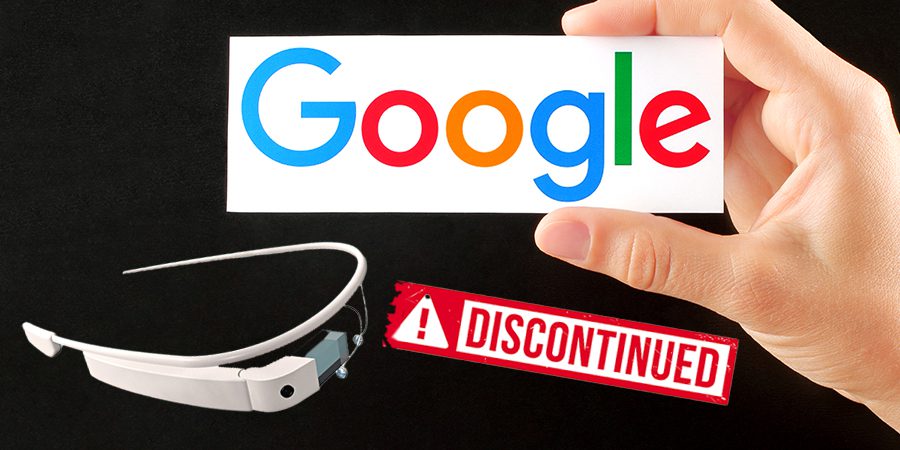Subscribe
"Unlock exclusive insights and elevate your financial wisdom with NetWorth.com — subscribe now to stay ahead in the wealth game!"

In this article, we’ll look at the reasons behind the discontinuation of Google Glass Enterprise Edition 2 and what the future might hold for augmented reality (AR) technology.
Key Takeaways
Google Glass, an ambitious AR headset project, first emerged in 2013, capturing the attention of tech enthusiasts worldwide.
The original version, Glass Explorer Edition, was sold to developers and early adopters for $1,500.
However, despite initial excitement, the product never became mainstream due to privacy concerns and ridicule from late-night TV shows.
In 2015, Google shifted its focus to businesses and developers, ultimately launching the Glass Enterprise Edition 2 in 2019 for $999.
This version aimed to provide a heads-up display for workers in medical, agricultural, and industrial settings, delivering essential information while keeping their hands free.
The discontinuation of Google Glass Enterprise Edition 2 marks the end of one of the most recognizable smart glasses products from a leading tech company.
Google spokesperson Patrick Seybold confirmed to The Verge that the AR headset is no longer being sold.
Support for the device, including the built-in Meet app and repair service, will be terminated on September 15, 2023.
Devices are expected to function beyond this date, but no further software updates will be provided.
As the global economy faces challenges and downturns, companies are increasingly focused on streamlining their operations and prioritizing projects that generate revenue.
Google is no exception, having recently announced the cutting of 12,000 jobs and significant changes to its startup incubator.
The discontinuation of Google Glass Enterprise Edition 2 can be seen as part of this broader trend, with companies reevaluating their investments and refocusing on profitable ventures.
The AR industry, in general, has experienced setbacks as well. Magic Leap’s latest headset is now aimed at enterprises instead of everyday consumers, and the US Army’s testing of Microsoft’s HoloLens has encountered obstacles.
These developments, along with Google’s decision to discontinue Glass, suggest that the AR future envisioned just a few years ago has not yet materialized.
Despite the discontinuation of Google Glass Enterprise Edition 2, the company remains “deeply committed to AR,” according to Seybold.
Google continues to explore new and innovative ways to incorporate AR experiences across its product portfolio.
In 2022, the company demonstrated a prototype of smart glasses capable of translating and transcribing speech in real-time, indicating that Google has not abandoned its interest in AR or face-mounted technology.
Google’s withdrawal from the smart glasses market leaves room for other tech giants, such as Meta and Apple, to invest in AR and virtual reality (VR) technology.
Meta has already released Ray-Ban smart glasses equipped with cameras but no display, and CEO Mark Zuckerberg has hinted at a Google Glass-like final version for the product line.
Apple is reportedly working on a VR headset that utilizes outward-facing cameras to display the external environment through a transparent lens.
Microsoft also offers its HoloLens AR glasses for businesses, but the company has reportedly laid off parts of the team responsible for the device.
Furthermore, HoloLens creator Alex Kipman left Microsoft in 2022. Despite these setbacks, Microsoft’s HoloLens continues to be a significant player in the enterprise AR market.
Although the discontinuation of Google Glass Enterprise Edition 2 signals a setback for the AR industry, it does not necessarily indicate the demise of AR and smart glasses technology.
With companies like Meta, Apple, and Microsoft continuing to invest in AR and VR, the development of advanced and practical smart glasses remains a possibility.
As technology evolves and new applications for AR emerge, businesses and consumers alike may eventually adopt smart glasses as a valuable tool in various fields, such as healthcare, manufacturing, and education.
In the meantime, companies will likely continue to explore different approaches and refine their offerings to meet the changing demands of the market.
The discontinuation of Google Glass Enterprise Edition 2 highlights the challenges and uncertainties facing the AR industry.
However, with ongoing investment and innovation from major tech players, the future of AR and smart glasses technology remains promising.